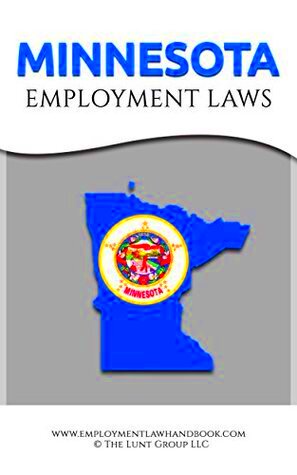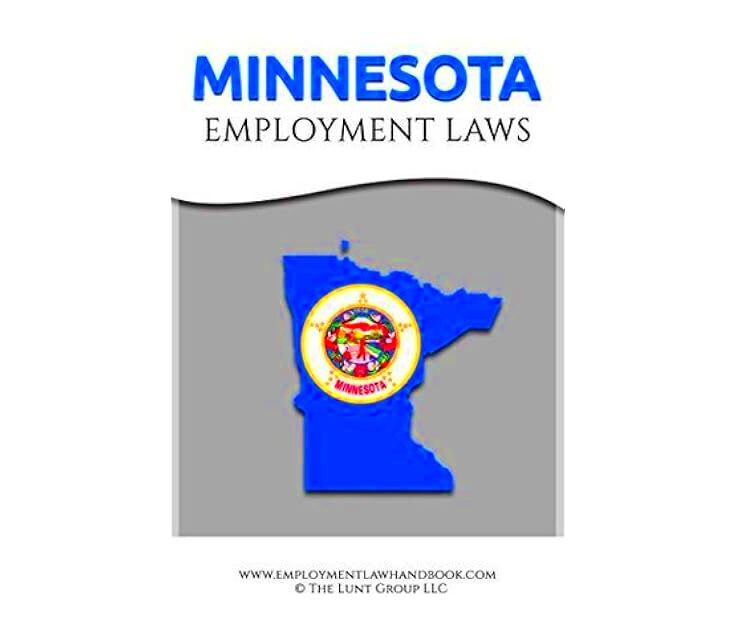Minnesota Employment Laws: What You Need to Know
Minnesota employment laws ensure that there’s a balance between employers and employees in the workplace. If you’re an employee trying to find out about your rights or a business owner who wants to remain compliant, it’s imperative for you to understand these laws. From wage regulations to anti-discrimination protections, Minnesota has put down a complete legal structure which guarantees equality at workplaces. Here are some of the most important elements of these laws as a help in comprehending how they affect you.
Employee Rights and Protections in Minnesota

The employees in Minnesota, are provided with a number of rights and protections to ensure their wellbeing in the work_place. Among others are:
- Non-discrimination: Minnesota law prohibits employers from discriminating based on race, gender, religion, disability, and other protected categories.
- Safe working conditions: Employers must provide a safe and healthy working environment in compliance with state and federal safety standards.
- Protection against retaliation: Employees who file complaints or participate in investigations regarding workplace violations are protected from retaliation by their employer.
- Equal pay: Minnesota enforces equal pay laws to ensure that employees are paid fairly regardless of gender.
One must keep in mind that the existence of the aforementioned rights is not merely theoretical. Employees can complain to Minnesota Human Rights department or undertake a lawsuit if their employers violate any of these protections. Awareness of these rights enables you to defend yourself against any workplace injustices.
Wage and Hour Regulations in Minnesota
The laws regulating wages and working hours in Minnesota were meant to make sure employees get appropriate compensation for the labor they provide. This covers everything from the lowest amount of money a person can earn to the extra money paid for working overtime and time taken off work for meals. Let’s go through some of them:
| Regulation | Details |
|---|---|
| Minimum Wage | For large employers (over $500,000 in revenue), the minimum wage is $10.33 per hour. For smaller employers, it’s $8.42 per hour. |
| Overtime Pay | Employees must be paid 1.5 times their regular wage for hours worked beyond 48 in a week. |
| Meal and Rest Breaks | Employees are entitled to an unpaid meal break of at least 30 minutes for shifts longer than 8 hours, and a paid rest break for every 4 consecutive hours worked. |
Employers can face penalties such as back pay for affected employees if they do not follow these wage and hour rules. Also, employees can report such violations without any fear hence making the wage protection policies in Minnesota stronger.
Discrimination and Harassment Policies for Minnesota Employers
The State of Minnesota considers discrimination and harassment in the workplace as a serious issue. In accordance with the law, employers have a responsibility to create work environments that are devoid of discriminatory behavior and harassment on the grounds of protected characteristics such as race, gender or religion. This enables employees to be more secure at work through comprehension of these laws while promoting compliance among employers.
The fundaments for policies regarding anti-discrimination are laid down in Minnesota Human Rights Act (MHRA):
- Protected classes: The law prohibits discrimination based on race, color, creed, religion, national origin, sex, marital status, disability, sexual orientation, and age.
- Harassment prevention: Employers must actively work to prevent harassment, which includes both sexual harassment and harassment based on any of the protected characteristics.
- Reasonable accommodations: For employees with disabilities, employers must provide reasonable accommodations unless doing so would cause undue hardship.
- Reporting mechanisms: Employers are required to establish reporting systems for harassment or discrimination complaints, and investigations must be conducted in a timely manner.
If an employee thinks they have been discriminated against or harassed, they can either complain to the Minnesota Department of Human Rights or go to court. Employers should keep in mind that maintaining a zero tolerance policy as well as offering periodic trainings will aid them in averting such instances.
Family and Medical Leave Provisions in Minnesota
The family and medical leave protection offered by Minnesota is meant to support employees in balancing work and their significant personal and family needs. Employees’ health or family duties must not come at the expense of their job stability, which is what these laws seek to guarantee.
Below is an overview of family and medical leave in the state of Minnesota:
- Family Medical Leave Act (FMLA): Minnesota follows federal FMLA guidelines, allowing eligible employees to take up to 12 weeks of unpaid leave for family and medical reasons, such as the birth of a child, adoption, or serious illness.
- Minnesota Pregnancy and Parenting Leave: In addition to FMLA, Minnesota offers up to 12 weeks of unpaid leave for childbirth or adoption, regardless of the size of the employer.
- Continued benefits: During FMLA or state-protected leave, employees’ health benefits must be maintained, and they are guaranteed job protection upon return.
- Sick and Safe Time: Some cities in Minnesota, like Minneapolis and Saint Paul, require employers to provide paid sick and safe time, allowing employees to take time off for illness or domestic violence issues.
Consequently, it is of great importance that both employers and their employees recognize their rights regarding these provisions. Unpaid as it may be, taking leave without fear of being fired could serve as a tremendous consolation for workers facing personal difficulties.
Workers’ Compensation Laws in Minnesota
The advantages of workers’ compensation in Minnesota are extended to employees who have sustained injuries at work or who have acquired illnesses related to their jobs. It assists in paying for medical bills, replacement incomes and even re-education expenses. In general, companies in Minnesota must provide worker compensation insurance to their staff, albeit with a few exceptions.
The essence of Minnesota’s workers’ compensation regulations consist of:
- Eligibility: Almost all employees in Minnesota are covered by workers’ compensation, regardless of full-time or part-time status. Independent contractors may not be covered unless they meet certain criteria.
- Types of benefits: Workers’ compensation covers medical care, wage-loss benefits (both temporary and permanent), and vocational rehabilitation services. In some cases, it may also provide death benefits to the family of a deceased worker.
- Filing a claim: Employees must report work-related injuries to their employer within 14 days. Failure to report within this timeframe could jeopardize the ability to receive benefits.
- No-fault system: Workers’ compensation is a no-fault system, meaning that employees don’t need to prove employer negligence to receive benefits.
Employees should report their injuries as soon as they happen so as to have a smooth process in filing claims. Employers need to, however, have laid down procedures that are clearly outlined on how to report injuries and also educate their staff on timely reporting. Hence, workers will be able to seek medical assistance and financial help without being held back by unnecessary delays.
Termination and At-Will Employment in Minnesota
Minnesota operates under the “at-will” employment doctrine, meaning that either the employer or the employee can terminate the employment relationship at any time, for any reason (or no reason), as long as it is not illegal. However, there are certain exceptions and legal protections that both employees and employers need to be aware of when it comes to termination.
In short, these are some of the most important things that you need to know:
- Wrongful termination: Even in an at-will state like Minnesota, firing an employee for discriminatory reasons, such as race, gender, or religion, is illegal under the Minnesota Human Rights Act.
- Retaliation protection: Employers cannot fire an employee in retaliation for reporting workplace violations, such as safety concerns or discrimination complaints.
- Implied contracts: In some cases, an employer’s policies, such as those in an employee handbook, could create an implied contract, making it harder to terminate without cause.
- Whistleblower protections: Minnesota law protects employees who report illegal activities within their workplace from termination or retaliation.
At-will employment enables employers to have some flexibility, but it is essential for employees to understand that they are still protected from wrongful discharge. Being aware of your rights in this context could assist you in handling any concerns that may come up surrounding job security.
Frequently Asked Questions about Minnesota Employment Laws
FAQs about Minnesota Employment Laws by Employees and Employers Sparkler Dressing Gone Michigan Pants Minnesota employers and employees often question how the state’s work regulations influence them. Below are the most frequently asked questions:
- Is Minnesota a right-to-work state?
No, Minnesota is not a right-to-work state. This means that union membership and dues can be required as a condition of employment in unionized workplaces. - Can an employer reduce my pay without notice?
Employers must notify employees before reducing their wages, and the new wage rate cannot be applied retroactively to work already performed. - How much notice is required for termination?
In an at-will employment arrangement, no notice is required for termination unless a contract specifies otherwise. However, employers must follow legal guidelines to avoid wrongful termination claims. - Am I entitled to a severance package?
Severance packages are not required by Minnesota law, but they may be provided based on company policy or employment contracts.
These FAQs offer explanation of some of the more complicated facets of Minnesota employment law. If you’re in doubt about your rights or obligations, it’s always best to seek legal counsel.
Final Thoughts on Minnesota Employment Regulations
The significance of Minnesota’s employment laws to the employees as well as employers is quite paramount. This is because the laws touch on such diverse issues as wages, protection from workplace discrimination, family leave or sick days, and termination rules. For an equitable and lawful working atmosphere, it remains important for employees to keep themselves updated about their rights while employers must know what their responsibilities are.
It doesn’t matter if you are starting a new job or have an employment-related problem, understanding the basics of Minnesota’s laws can change everything. Although it’s a good idea to know this laws since they are general principles guiding all other situations, each case must be treated differently prompting one to seek professional legal advice where appropriate. Ultimately it is beneficial for all employees in any workplace to be well informed.


